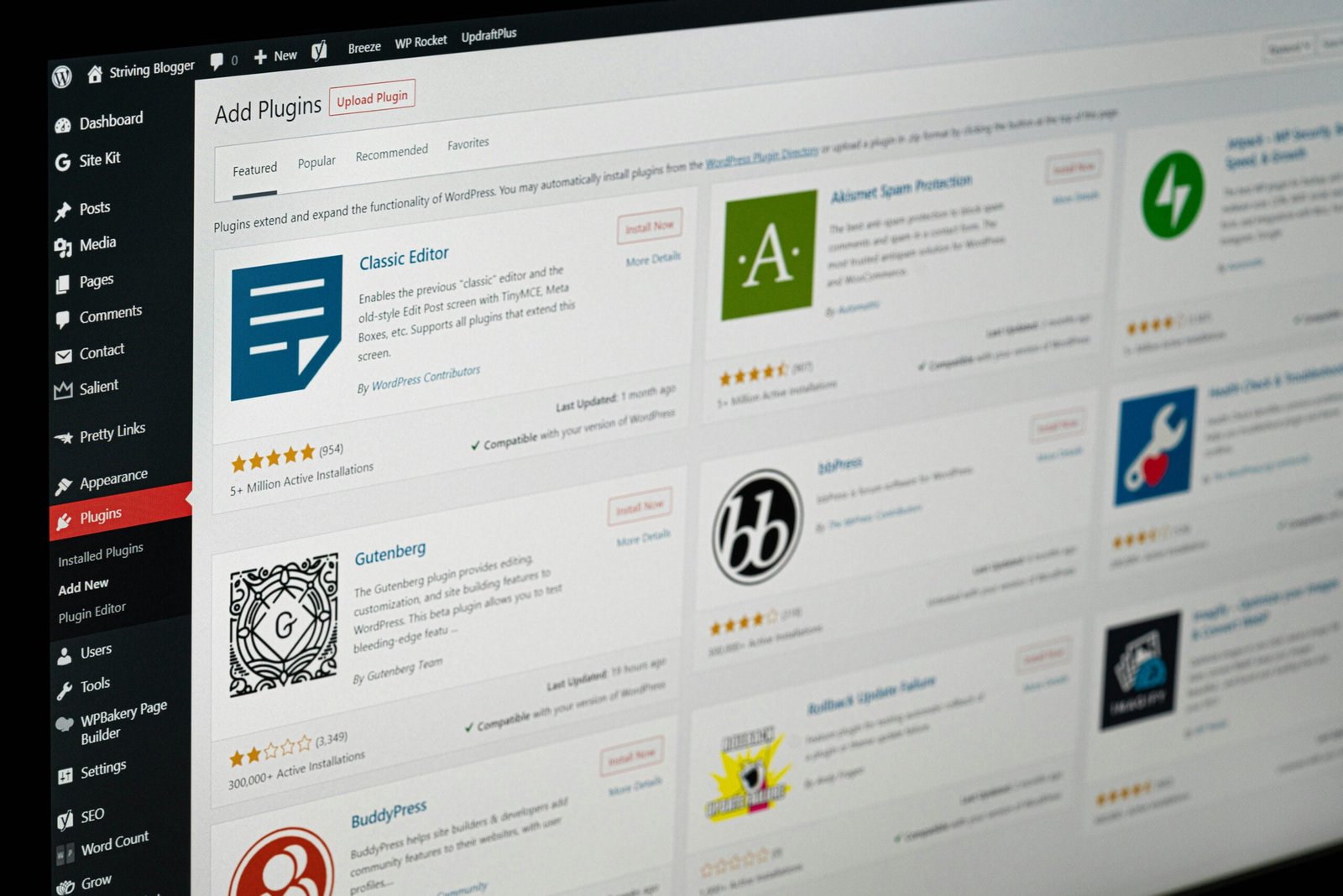Introduction to Digital Marketing
In today’s rapidly evolving business landscape, digital marketing has emerged as a cornerstone for companies aiming to achieve sustained growth and competitive advantage. Unlike traditional marketing, which primarily relies on print, television, and radio, digital marketing leverages the internet and electronic devices to reach potential customers. This approach allows businesses to engage with their audience in a more targeted, measurable, and cost-effective manner.
At its core, digital marketing encompasses a wide array of strategies and channels designed to connect with consumers online. These channels include Search Engine Optimization (SEO), which enhances a website’s visibility on search engines; content marketing, which involves creating valuable content to attract and engage a target audience; social media marketing, which uses platforms like Facebook, Twitter, and Instagram to promote products and services; and email marketing, which leverages personalized emails to nurture leads and maintain customer relationships.
The importance of digital marketing cannot be overstated. It provides businesses with the tools to understand consumer behavior through data analytics, allowing for more informed decision-making. Digital marketing also facilitates real-time interaction with customers, fostering a sense of community and loyalty. Furthermore, it offers unparalleled reach, enabling businesses to transcend geographical boundaries and tap into global markets.
As businesses continue to recognize the myriad benefits of digital marketing, the demand for proficient digital marketers is on the rise. Mastering the various components of digital marketing is essential for anyone looking to thrive in today’s digital-first world.
With this foundational understanding of digital marketing, we can now delve deeper into one of its most critical aspects: Search Engine Optimization (SEO). This next section will explore how SEO works, its significance, and strategies to effectively implement it.
Key Components of Digital Marketing
Digital marketing encompasses various strategies and techniques aimed at promoting products, services, and brands through digital channels. Each component within digital marketing serves a unique purpose and can be tailored to meet specific business objectives. Understanding these key components is essential for crafting a successful digital marketing strategy.
SEO (Search Engine Optimization)
SEO, or Search Engine Optimization, is the practice of optimizing web content to rank higher in search engine results pages (SERPs). This component of digital marketing involves keyword research, on-page optimization, technical SEO, and building high-quality backlinks. The primary goal is to increase organic traffic by making the website more visible to users searching for relevant terms. Effective SEO can lead to sustained web traffic and improved credibility. For more insights, visit our article on SEO best practices.
PPC (Pay-Per-Click) Advertising
PPC advertising is a model where advertisers pay a fee each time their ad is clicked. This digital marketing strategy allows businesses to bid for ad placement in search engine sponsored links or on social media platforms. PPC campaigns can be highly targeted, enabling advertisers to reach specific audiences based on demographics, interests, and behaviors. The primary benefit of PPC is immediate visibility and traffic, making it an effective tool for short-term campaigns. For an in-depth guide, see our PPC advertising tutorial.
Content Marketing
Content marketing focuses on creating and distributing valuable, relevant, and consistent content to attract and engage a target audience. This component of digital marketing includes blog posts, videos, infographics, ebooks, and more. The purpose is to provide value to the audience, establishing the brand as an authority in its industry. Effective content marketing can drive organic traffic, enhance brand loyalty, and generate leads. Our article on content marketing strategies offers more detailed information.
Social Media Marketing
Social media marketing leverages platforms like Facebook, Twitter, Instagram, and LinkedIn to promote products and engage with audiences. This digital marketing component involves creating and sharing content, running ads, and interacting with users. Social media marketing helps increase brand awareness, drive website traffic, and foster community engagement. The ability to reach a broad audience and engage in real-time makes social media a powerful tool in any digital marketing strategy. Explore our social media marketing tips for more details.
Email Marketing
Email marketing is a direct form of digital marketing that involves sending emails to prospects and customers. It can be used for various purposes, such as promoting products, sharing news and updates, and nurturing leads. The key to successful email marketing lies in building a quality email list, personalizing content, and analyzing campaign performance. Email marketing can drive significant ROI by maintaining customer relationships and encouraging repeat business. For more, check out our guide on effective email marketing.
Affiliate Marketing
Affiliate marketing is a performance-based strategy where businesses reward affiliates for driving traffic or sales through their marketing efforts. Affiliates can be bloggers, influencers, or other businesses that promote products to their audience. This component of digital marketing allows businesses to expand their reach and leverage the influence of trusted affiliates. The benefits include cost-effectiveness and the ability to tap into new customer segments. Learn more from our affiliate marketing guide.
Each of these components plays a crucial role in a comprehensive digital marketing strategy, ensuring businesses can effectively reach and engage their target audience. For further reading, explore our related articles and external resources to deepen your understanding of these essential digital marketing components.
Creating a Digital Marketing Strategy
Developing a robust digital marketing strategy is crucial for any business aiming to thrive in the digital landscape. The process begins with setting clear, measurable goals that align with your overall business objectives. Whether you aim to increase brand awareness, drive website traffic, or boost sales, having well-defined goals provides direction and a benchmark for success.
Next, identifying your target audience is essential. Understanding their demographics, interests, and online behaviors allows you to tailor your digital marketing efforts effectively. Use tools such as surveys, social media insights, and customer feedback to gather this information. Creating detailed buyer personas can also help in personalizing your marketing messages.
Choosing the right digital marketing channels is another critical step. Different platforms serve different purposes, and your choice should depend on where your target audience spends their time. For instance, LinkedIn might be ideal for B2B marketing, while Instagram can be more effective for B2C campaigns. Diversifying your efforts across multiple channels can also enhance your reach and engagement.
High-quality content is the cornerstone of any successful digital marketing strategy. Content should be informative, engaging, and relevant to your audience. This includes blog posts, videos, infographics, and social media updates. Incorporating SEO best practices, such as maintaining keyword density around 1%, ensures that your content is discoverable by search engines. For instance, integrating the focus keyword ‘digital marketing’ naturally within your content can improve your search rankings.
Measuring and analyzing the performance of your digital marketing campaigns is paramount. Tools like Google Analytics provide valuable insights into your website traffic, user behavior, and conversion rates. Regularly reviewing these metrics helps you understand what is working and what needs adjustment. Setting up KPIs (Key Performance Indicators) can further aid in tracking your progress.
Maintaining an optimal keyword density is crucial to avoid keyword stuffing while ensuring your content remains searchable. This balance can enhance readability and user experience, ultimately leading to better engagement and conversions.
For more detailed insights on creating a digital marketing strategy, refer to this comprehensive guide by HubSpot. Additionally, explore our blog post on content marketing tips to further refine your strategy.
Best Practices and Trends in Digital Marketing
In the ever-evolving landscape of digital marketing, staying abreast of the latest trends and best practices is crucial for success. Emerging technologies like artificial intelligence (AI) and machine learning are revolutionizing how marketers approach their strategies. AI can analyze vast amounts of data to provide insights into consumer behavior, predict trends, and personalize marketing efforts. Machine learning, a subset of AI, enables systems to learn and improve from experience without being explicitly programmed, making it invaluable for optimizing campaigns and targeting the right audience.
Video content continues to rise in prominence, becoming a staple in digital marketing strategies. Platforms such as YouTube, TikTok, and Instagram Reels have made video a preferred medium for many consumers. Videos are engaging, easily shareable, and effective at conveying messages quickly. Integrating video content into your marketing plan can significantly boost engagement rates and enhance brand visibility.
Another key trend is the growing importance of mobile marketing. With the increasing reliance on smartphones, optimizing for mobile devices is no longer optional. Mobile-friendly websites, apps, and advertisements are crucial for reaching a broader audience. Implementing responsive design and ensuring that all content is accessible and visually appealing on mobile devices can enhance user experience and drive conversions.
Staying updated with industry trends is essential for maintaining a competitive edge in digital marketing. Subscribing to industry newsletters, attending webinars, and participating in online forums can provide valuable insights and networking opportunities. Additionally, continually optimizing your digital marketing efforts through A/B testing, analyzing performance metrics, and adjusting strategies based on data-driven insights can lead to sustained success.
For further reading on this topic, consider exploring resources like HubSpot, which offers comprehensive guides and articles on digital marketing trends and strategies. Also, check out our related article on Content Creation Strategies to enhance your digital marketing efforts.




